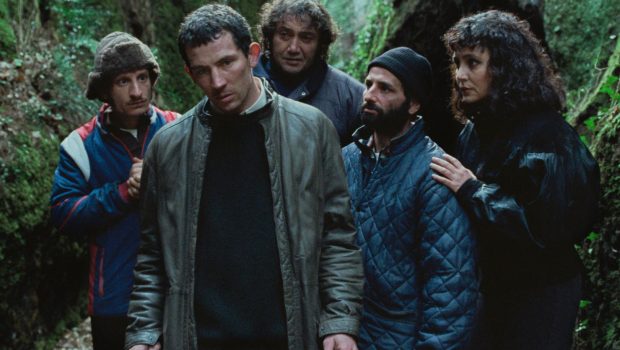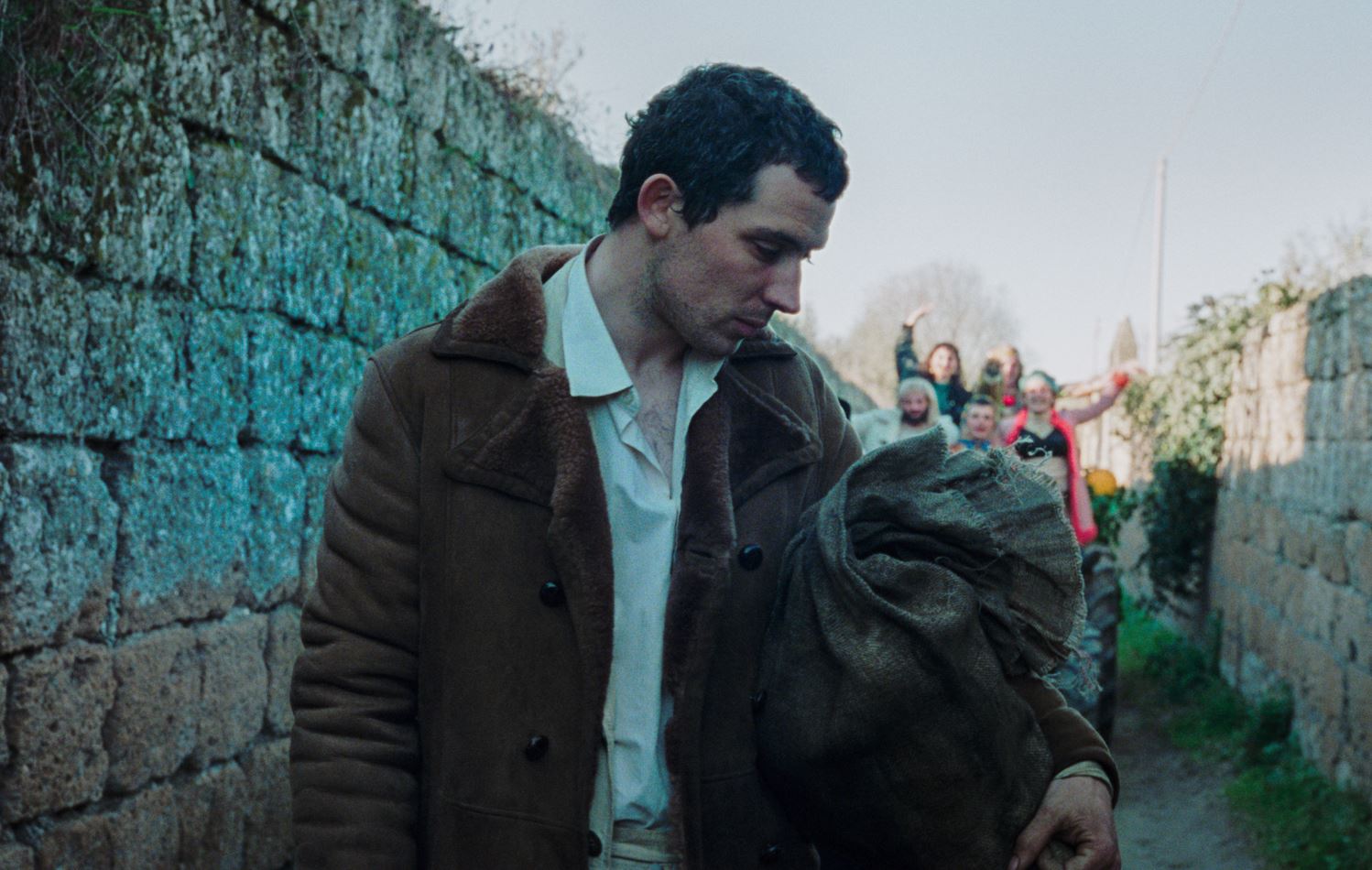La Chimera – Film Review
Reviewed by Damien Straker on the 9th of April 2024
Palace Films presents a film by Alice Rohrwacher
Written by Alice Rohrwacher
Produced by Carlo Cresto Dina
Starring Josh O’Connor, Carol Duarte, Vincenzo Nemolato, Alba Rohrwacher, and Isabella Rossellini
Cinematography Hélène Louvart
Edited by Nelly Quettier
Cinematography by Hélène Louvart
Editing by Nelly Quettier
Running Time: 132 minutes
Rating: M
Release Date: the 11th of April 2024
The Italian film La Chimera commences slowly but is soon buoyed by contrasting thematic binaries and a strong, unexpected ending. The drama marks the second feature film of Italian writer and director Alice Rohrwacher. She peppers her story of archaeology and thievery with deft traces of humour too. Her previous feature was the peculiar but fascinating social drama Happy as Lazzaro (2018). The film was critically acclaimed for making strong use of its outdoor, rural locations and combining scenes of neorealism and imagination. The same is true with La Chimera. It benefits from its naturalistic photography and its complex ideas, including the rich and poor, the living and the dead, and conformity and isolation. Rohrwacher is in no hurry to unpack these interesting themes. The slow pacing of the film’s opening quarter is testing as we wait for the major complications to begin. However, the film is more enjoyable the longer it continues. Its dramatisation of its lonely protagonist becomes more transparent. Rather than building a story of tension around a heist as one might expect from a story of art thieves, La Chimera proves to be an effective study of isolation.
Set in Italy in the 1980s, the film is about Arthur (The Crown’s Josh O’Connor) who is first seen on a train following a prison stint. Unwashed, he reluctantly returns home to his old gang of grave-robbers or ‘tombaroli’ in Tuscany. The group specialises in uncovering Etruscan tombs and then fencing the stolen jewels on the black market. Using a stick, Arthur possesses an uncanny sixth sense for uncovering these grave sites. His abilities are critical to the gang and its findings. Also pivotal to the gang is the mysterious Spartaco who purchases their stolen artefacts. Arthur is haunted by memories of the woman he loved, Beniamina (Yile Yara Vianello). She was the daughter of Flora (Isabella Rosellini). Flora is still in denial over Beniamina being dead. Instead, she is cold towards her maid, Italia (Brazilian actress Carol Duarte), who cannot sing and struggles with her domestic duties. Italia and Arthur form a romantic bond, but their differing attitudes to his profession causes personal friction.
Rather than being an airtight thriller, the film is an effective look at isolation. The reason for why Arthur, a British man, is in Italy is deliberately concealed. His nationality amplifies how Arthur is still an outsider in Italian society. His exclusion is established in the opening scene. He is in a train carriage talking to two friendly young women. Yet when a man makes a joke that he is unclean Arthur attacks him. Everyone in the carriage grows scared of him and leaves. The people in his village are more affable but he storms off to live in a tiny outdoor shed alone. As he walks up the muddy hill, Rohrwacher uses a high camera angle to frame his movement. The height of the shot makes him appear small and infers his marginalisation from society. This is a man who wants to live alone but is essentially strongarmed into helping people steal. The action of uncovering these graves also achieves a double meaning. Arthur’s flashbacks to Beniamina are filmed in a way that suggests he is stagnant. Rohrwacher frames the intercuts in a box ratio, so they resemble a home movie. The form paints Beniamina as Arthur’s ‘chimera’, something mythical and unobtainable. His inability to develop accounts for why his bond with Italia is fragile. She is also on the fringes. Italia is not highly domesticated as shown when she burns clothes with an iron. She also hides her young children and needs her own place to stay. Since Arthur cannot relinquish the past his relationship with her is never entirely consolidated. People laugh when he tidies himself up before seeing her, which foreshadows its fragility. Their inability to connect underlines their isolation when living outside of money.
The film’s production notes provide historical context to the action of grave digging. It outlines how the young generation of the 1980s in Etruria wanted to earn money away from their bosses and felt entitled to the treasures in the area. Some of La Chimera’s best scenes dramatise how this entitlement creates personal conflict. Arthur and Italia share a nice evening together at an outdoor festival. However, the opportunity for a grave job is difficult for him to resist. In his suit Arthur starts digging in the dirt. When Italia realises Arther and his gang are robbers she threatens to call the police. Their actions infringe on her spiritualism. The moment creates a void between herself and Arthur and casts her on the fringes. In another strong moment, the gang is left on the outskirts of high society. While on a ship, Spartaco’s people obtain a valuable statue, but Arthur’s gang have the head. It marks a tense standoff between two corrupt social classes who both feel entitled. Rohrwacher’s camera cuts to the heavy machinery powering the ship. The heavy soundtrack pairs with the vision of the engines. It shows how the art market is a hulking, unstoppable machine. The resolution to the sequence also leaves Arthur isolated. Both sides are seen snarling at each other, pitched by the camera and the performances as snarling animals. Arthur makes a decision that disrupts the machine but also upsets both camps. Even the right decision casts him aside. The scene typifies how La Chimera grows as it develops its personal conflict and finds variations on how greed and money ostracise people.
Running just over two hours, La Chimera is long and takes its time to find its footing. The way it oscillates between Arthur’s gang and the mistreatment of Italia is a touch unfocused. Yet it becomes clearer that everyone is exploited in some way. The gang only cares about Arthur’s special abilities so long as he is benefitting them. Italia just wants a stable home for herself and her two children. Carol Duarte has a soft, disarming screen presence that makes Italia innocent and sympathetic. Josh O’Connor also does a fine job of subtly expressing his character’s discontentment and longing to be left alone. No more is this beautifully captured than in the surprising and deeply unsettling ending. The film asks where Arthur can turn to when his friends are blatant thieves, and he is too rough to live a happy domesticated life with Italia and her children. The dark, original way Rohrwacher resolves this dramatic question is a testament to her talents and overcomes the film’s shortcomings.
Summary: Rather than building a story of tension around a heist as one might expect from a story of art thieves, La Chimera proves to be an effective study of isolation.








